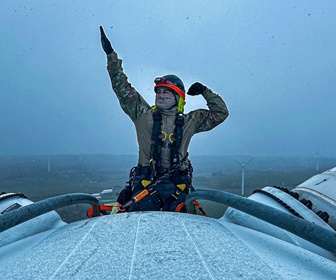Garrad Hassan (GH) and nine other industry and academic parties have already been collaborating to put together a successful proposal for EU support for the new RELIAWIND project, with the aim of measuring and understanding historical reliability to create a new generation of more intelligent and reliable wind turbines expected to generate electricity more cheaply.
The aim of RELIAWIND is to monitor component reliability, to propose new designs which are more reliable and cheaper to maintain and operate, thereby aiming to increase availability to 99% (Availability will improve from 85-90% to 97-98% offshore and from 97-98% to 98-99% onshore.). Reliability target is a 20% increase of Mean Time Between Failures (MTBF) in offshore and 10% in onshore wind. Mean Time To Repair (MTTR) will drop 50% offshore and 20% onshore. To achieve the project's aims, ten major suppliers of products and services to the wind energy industry have joined forces.? These include turbine and component manufacturers, wind farm owners and operators, consultants and research institutions.? The research comprises three key phases.
- The determination of a statistical basis for prioritising improvements in component reliability, repair and maintenance strategies.
- The evaluation of all plausible design failures and their consequences using techniques such as failure mode and effects analysis (FMEA) and fault tree analysis (FTA).
- The proposal of new, more robust designs and intelligent systems for monitoring component health and scheduling preventative maintenance.
Garrad Hassan, will be coordinating the collection and interpretation of historical data as well as comparing and prioritising component design effort. The new technologies will be integrated in new generations of wind turbines, components and wind farms, aiming for compatibility between different manufacturers and clients to achieve maximum service guarantee.










